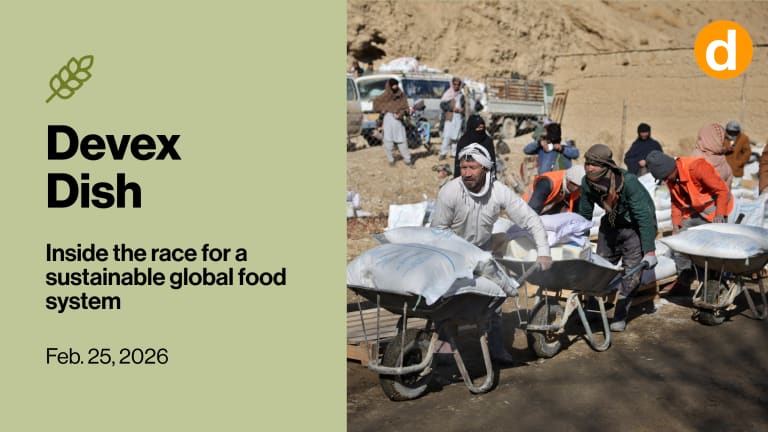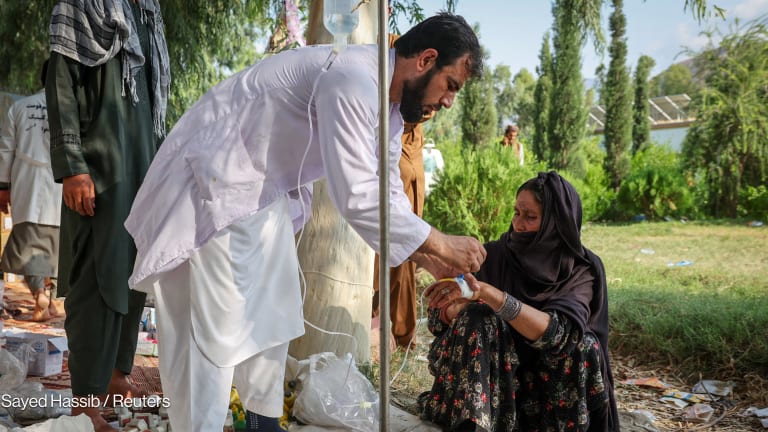The Biden administration is withholding tens of thousands of tons of wheat destined for hungry people in northern Yemen, part of a hardball diplomatic effort to help the United Nations compel the region’s ruling Houthi rebel movement to ensure that aid is delivered to those most in need, according to several humanitarian and diplomatic sources.
The move is aimed at strengthening the World Food Programme’s leverage in stalled negotiations with the Houthi leadership over the agency’s proposal to redirect food deliveries to districts with the highest levels of acute hunger.
A senior official with the Rome-based food agency told Devex it may have to pause its aid operations if it can’t secure an agreement with the Houthis. It comes just three years after the U.S. and the U.N. suspended assistance, citing the Iranian-backed Houthis’ interference in aid delivery and theft of U.N. food.








